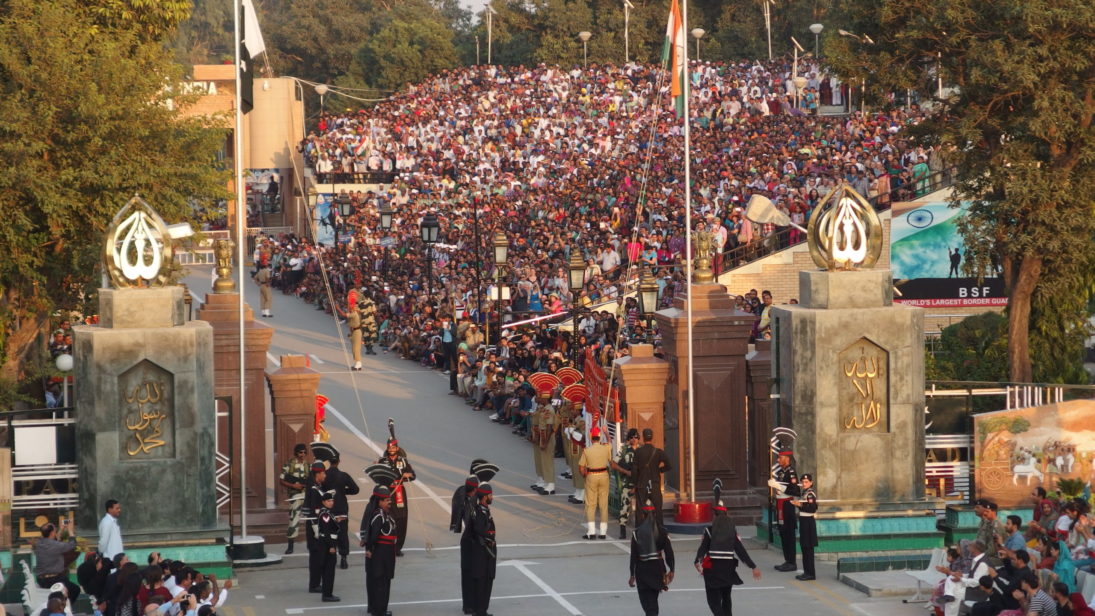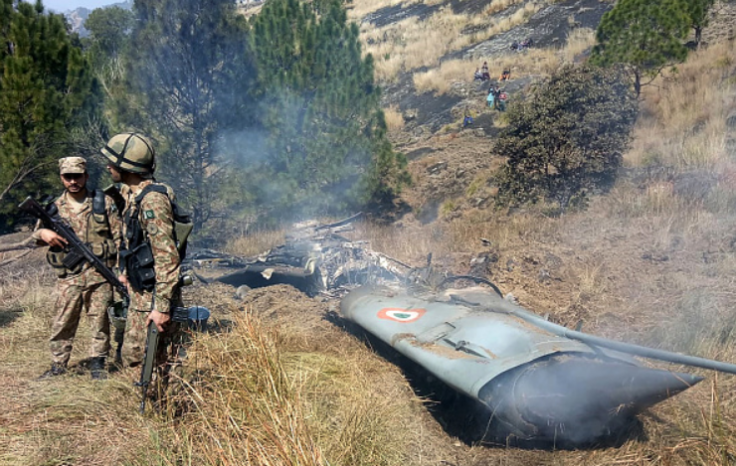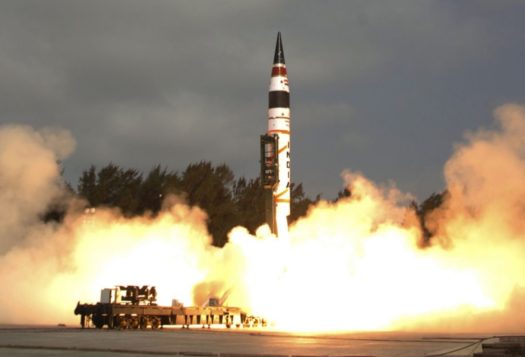
It is an honor to have one’s book reviewed by a credible scholar, but it is extraordinary (and humbling) to have two of one’s books reviewed at the same time by four prominent scholars and to have their opinions debated in a public forum. I am deeply grateful to the Stimson Center’s South Asian Voices team for arranging these reviews and to all four reviewers for showcasing them in a webinar earlier this month. The two books in question are The Quetta Experience: Attitudes and Value Within the Pakistan Army, published in 2018, and The Wellington Experience: Attitudes and Values Within the Indian Army, published in October 2020. Both were deliberately written using an identical methodology and narrative outline to facilitate a valid comparison of their findings.
Although I flatter myself that the webinar revealed many more areas of agreement than disagreement about the findings in the two books, all four reviewers found several points to criticize. Therefore, the South Asian Voices team afforded me this opportunity to offer my perspective. There is not enough space in a brief article to address every point of disagreement, so I will limit my comments to one criticism raised by each reviewer and make one general observation in conclusion.
Brigadier (retd.) Naeem Salik, a Senior Fellow at the Center for International Strategic Studies, Islamabad, reviewed The Wellington Experience. He correctly noted there is room for disagreement with two findings about the apolitical character of Indian military officers and the absence of any evidence of Hindutva-driven nationalism at the Defence Services Staff College. I agree with him that both points require further study. The research cutoff for the book was 2017; both findings then reflected the unanimous opinion of every U.S. Wellington graduate I interviewed. However, there is growing anecdotal evidence from more recent attendees that the two findings may be in process of evolution. Since the re-election of Prime Minister Modi in 2019, several controversial decisions made by his government call into question India’s long held commitment to secularism. There is also growing concern over the politicization of the Indian armed services. Since every nation’s military establishment reflects the society from which it springs, it can no longer be taken for granted that Wellington (or the Indian military) will remain a bastion of secularism insulated from national politics.
Since every nation’s military establishment reflects the society from which it springs, it can no longer be taken for granted that Wellington (or the Indian military) will remain a bastion of secularism insulated from national politics.
Reshmi Kazi, an Associate Professor in the Jamia Milia Islamia (Central University) in New Delhi, also reviewed The Wellington Experience. She sees my finding that the Indian Army ignores its counterinsurgency doctrine, the central feature of which is winning the hearts and minds of the local population in Kashmir, as “largely flawed.” As evidence, she notes that after the Modi government revoked the statehood of Jammu and Kashmir in August 2019, the Army intensified outreach efforts like Operation Sadbhavna and Mission Reach Out to provide essential commodities to locals in many affected areas. This may be true, but it is irrelevant to the main point. Any internet search on human rights abuses in Jammu and Kashmir yields dozens of reports by credible organizations disputing this view. To mention just one, the Forum for Human Rights in Jammu and Kashmir, an independent body co-chaired by former Supreme Court judge, Madan B. Lokur, published a report in February about the rights violations between August 2020 to January 2021 highlighting the fact that nearly every human rights violation in a report covering August 2019-July 2020 continues today in Kashmir. This includes denial of the right to a fair and free trial, the lack of legal protections like habeas corpus, and prevention of illegal detention. It further alleges misuse of the Public Safety Act (PSA) and the Unlawful Activities Prevention Act (UAPA) to throttle dissent and alleges a “near-total alienation” of the people in Kashmir from the central government. This is hardly the stuff of winning hearts and minds.

Sadia Tasleem, a lecturer at Quaid-i-Azam University’s Department of Defense and Strategic Studies in Islamabad, Pakistan, reviewed The Quetta Experience. Although she did not dispute the finding that “recent students believe Pakistan-focused militant groups are Pakistan’s most significant military threat, exceeding that posed by India,” and that there was a generational divide between senior and younger officers on this point, I now believe this finding is no longer true. The study was completed in 2014 when the state and Army were under widespread attack by Pakistan-focused militant groups like Tehreek-e-Taliban Pakistan. Younger officers at Quetta had by this time spent most of their careers fighting such groups. By 2018 when the book was published, the internal security situation in Pakistan had improved but was still fraught. Two major changes have since occurred, the first being the present dramatically improved internal security environment and, second, a series of events in 2019: the Pulwama/Balakot incident marking the first time two nuclear armed states have conducted airstrikes on each other’s territory, the Modi reelection, and, as she also notes, the stripping of statehood from Jammu and Kashmir. Coupled with Pakistan’s current non-binary narrative that internal security problems in Pakistan’s two westernmost provinces are directed by India from Afghanistan and are thus part of an external threat, India is back on top as the preeminent threat in the minds of all Pakistan Army officers.
Coupled with Pakistan’s current non-binary narrative that internal security problems in Pakistan’s two westernmost provinces are directed by India from Afghanistan and are thus part of an external threat, India is back on top as the preeminent threat in the minds of all Pakistan Army officers.
Aditi Malhotra, Co-Editor for the Journal for Intelligence, Propaganda and Security Studies in Graz, Austria, also reviewed The Quetta Experience. She highlighted the burgeoning relationship between Pakistan and China, Pakistan’s view of Kashmir through the lens of religion, and wished the book had probed officers’ perceptions of the Chinese mistreatment of Muslims in Xinjiang and whether realpolitik would trump religion in this case. She is right; I also wish I had explored this, but the issue did not have the degree of salience in 2018 that it does today. Nevertheless, it is almost certain that Pakistani officers would embrace realpolitik for two reasons: first, the near-collapse of the U.S.-Pakistan economic and military relationship after 2011 makes it necessary as a matter of national survival to stay on the good side of China, and second, Pakistan does not view its relationship with China through the same emotional lens with which it views India.
I will conclude with a general reference to the attitudes and values Indian and Pakistani officers on nuclear issues. This was a taboo subject at both Quetta and Wellington and the curriculum did not address the subject in any detail despite the fact that both countries are engaged in deploying and operationalizing a nuclear triad. DSSC reference materials clearly state Pakistan can be expected to use nuclear weapons against India if certain redlines are crossed, but the implications of this are ignored. This head-in-the-sand attitude is based on three dubious assumptions: (1) that Pakistan is a rational state actor who knows India can survive a nuclear war but that it will be utterly destroyed; (2) consequently, Pakistan must be “bluffing” about threatening to use nuclear weapons against Indian Army forces attacking across the international boundary; and (3), even if Pakistan is not bluffing, the sheer size of the Indian Army will allow it to sustain high casualties and continue to operate in a NBC environment. All three assumptions are rooted in ignorance about the effects of nuclear weapons, a subject once studied in great detail in the 1950s and 1960s, but mostly disappeared after 1974. Similarly, Pakistani officers at Quetta curiously believe that nuclear weapons can be used on its own soil against Indian forces without triggering Indian retaliation. The emotional lens through which both countries view each other make such beliefs dangerous and destabilizing. If any one thing needs to change at either Quetta or Wellington, it the clear-eyed addressal of the implications of such dangerous ideas.
Editor’s Note: This article is written in response to the South Asian Voices (SAV) series “Reviewing the Quetta and Wellington Experience,” in which analysts from India and Pakistan discuss Col. (retd.) David O. Smith’s two works The Wellington Experience and Quetta Experience. The SAV webinar, featuring David Smith and the series contributors Brig. (retd.) Naeem Salik, Reshmi Kazi, Sadia Tasleem, and Aditi Malhotra can be watched here.
***
Image 1: Guilhem Vellut via Flickr
Image 2: STR/AFP via Getty Images


